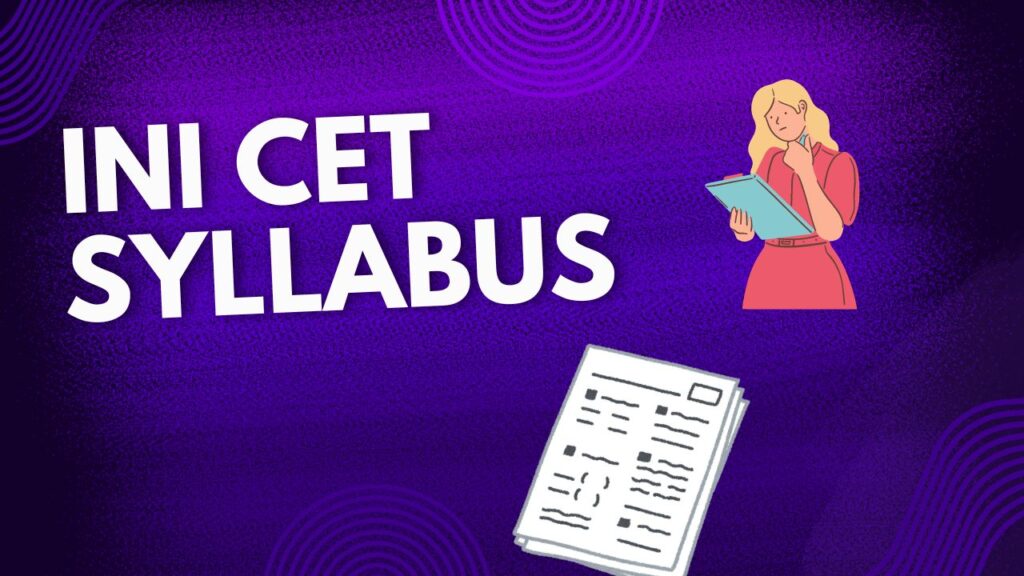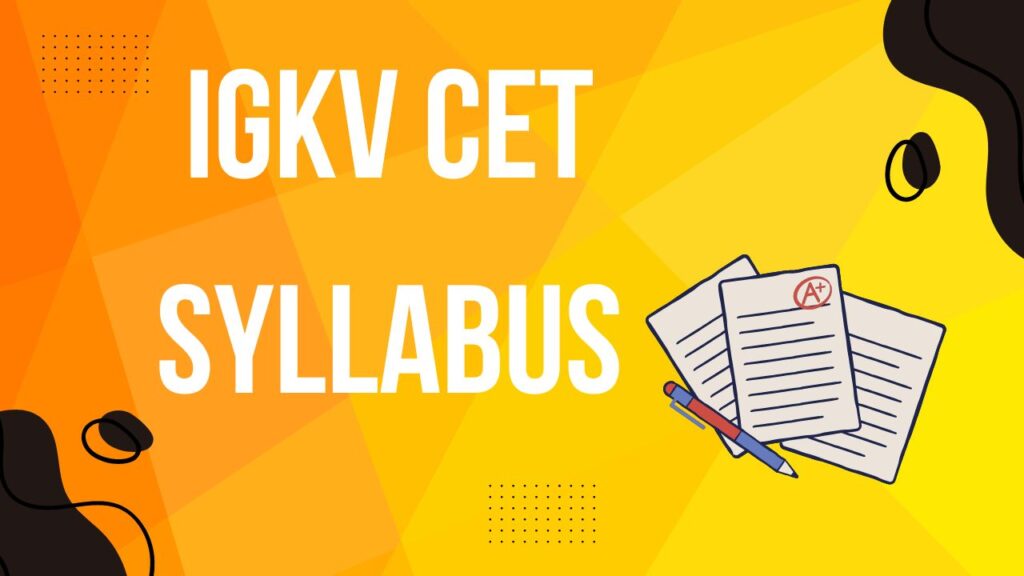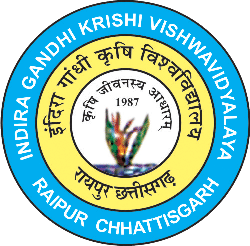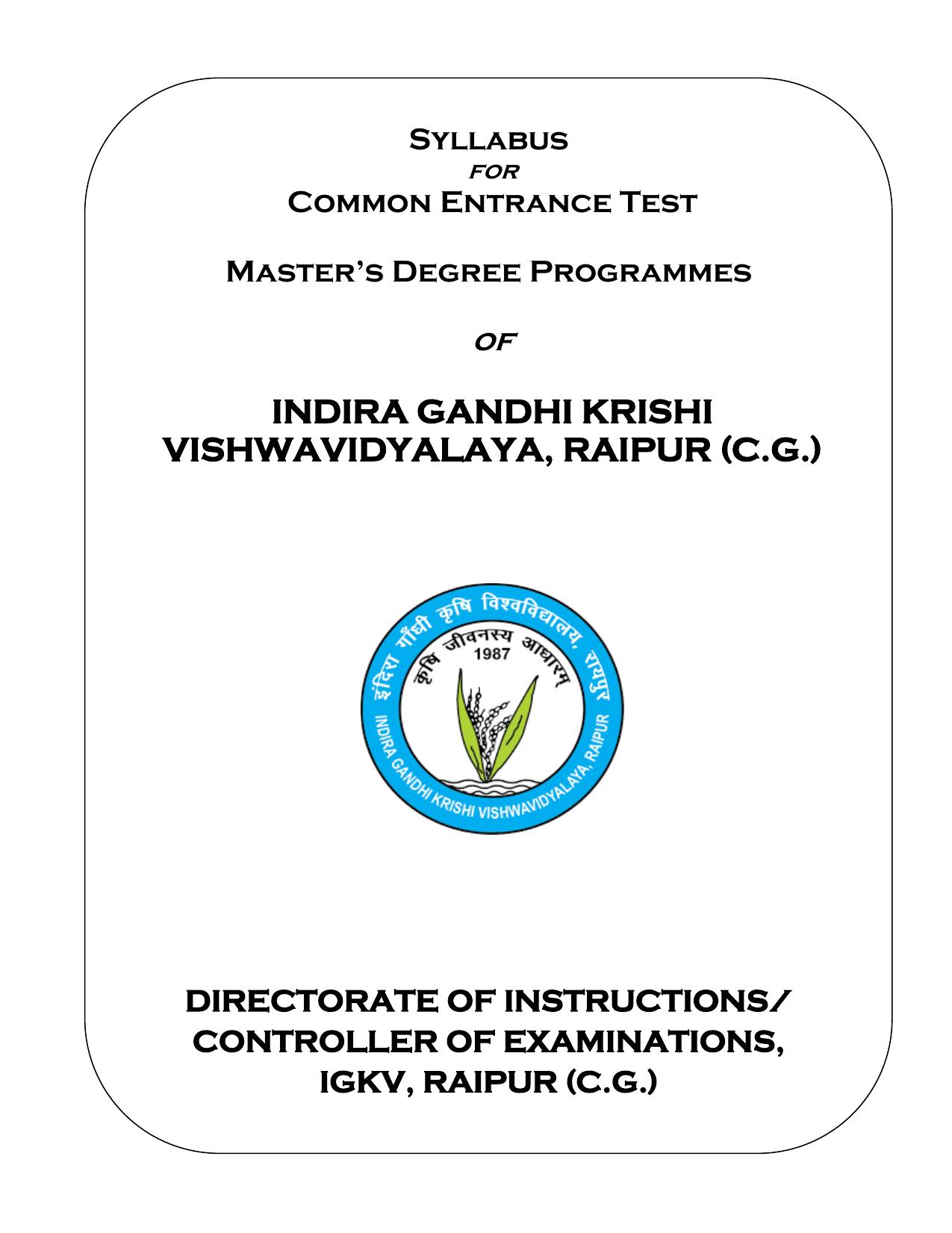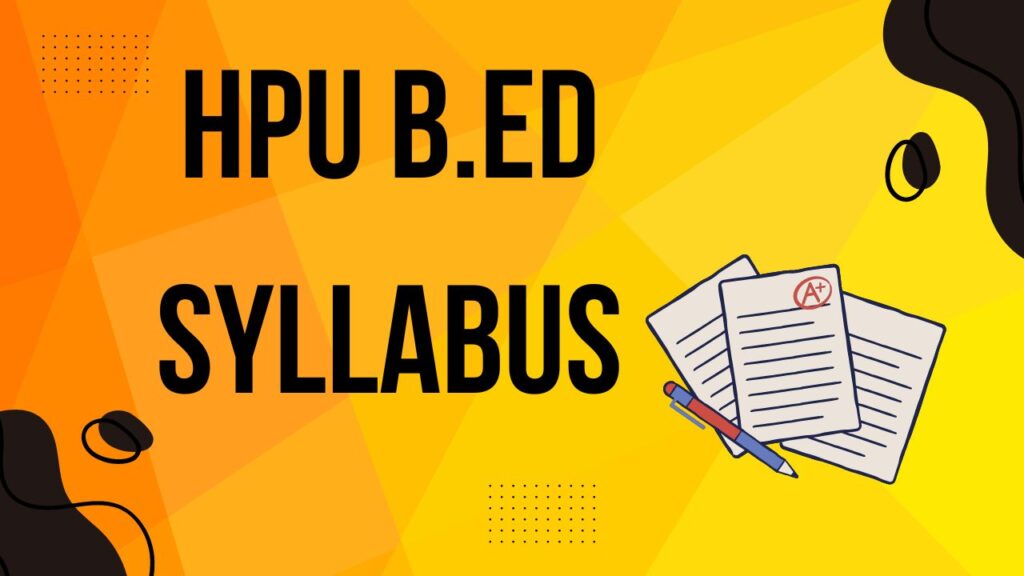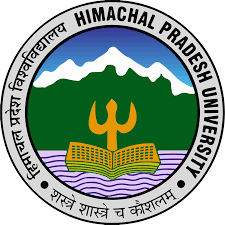INI CET Syllabus-INI CET Syllabus Download PDF
INI CET Syllabus
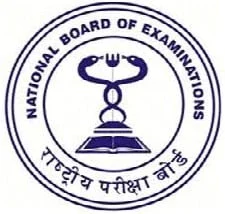
INI CET Syllabus
The Institute of National Importance Combined Entrance Test (INI CET) is a very tough test for getting into top medical schools across India for advanced studies. Understanding the INI CET course is very important for people who want to do well on this test. This detailed guide gives a full picture of the course outline, important topics, and useful study methods that will help candidates get the best grades.
Introduction to INI CET
All India Institute of Medical Sciences (AIIMS) holds the INI CET for people who want to get into MD, MS, MCh, and DM advanced studies. The test checks how much the prospects know and understand about medical topics, as well as their practical skills and general ability.
INI CET Syllabus Overview
The INI CET course is very broad and covers many topics that are important for medical education. Its purpose is to see how well a candidate understands medical ideas and how they can be used in real life.
1. Basic Sciences
1.1. Anatomy
- General Anatomy: Human body systems, anatomical terminology, and basic structural organization.
- Regional Anatomy: Detailed study of various body regions, including head and neck, thorax, abdomen, and limbs.
- Embryology: Developmental stages of the human embryo and congenital anomalies.
1.2. Physiology
- General Physiology: Basics of cell physiology, tissue types, and homeostasis.
- Systemic Physiology: Functions of major systems including cardiovascular, respiratory, renal, and gastrointestinal systems.
- Neurophysiology: Structure and function of the nervous system, reflexes, and sensory modalities.
1.3. Biochemistry
- Cellular Biochemistry: Biomolecules, enzymes, and metabolic pathways.
- Clinical Biochemistry: Interpretation of biochemical parameters, metabolic disorders, and diagnostic tests.
- Nutrition: Basics of nutrition, dietary requirements, and related disorders.
2. Clinical Sciences
2.1. Medicine
- General Medicine: Diagnosis and management of common diseases, including infectious diseases, cardiovascular disorders, and respiratory conditions.
- Specialties: Endocrinology, nephrology, rheumatology, and gastroenterology.
- Emergency Medicine: Basic principles of emergency care, acute conditions, and critical care management.
2.2. Surgery
- General Surgery: Surgical procedures, wound management, and preoperative and postoperative care.
- Specialties: Orthopedic surgery, urology, and pediatric surgery.
- Surgical Pathology: Understanding of common surgical conditions and their pathological basis.
2.3. Obstetrics and Gynecology
- Obstetrics: Antenatal, intrapartum, and postnatal care, complications of pregnancy, and delivery.
- Gynecology: Menstrual disorders, reproductive health, and gynecological surgeries.
2.4. Pediatrics
- Growth and Development: Milestones, nutritional needs, and common pediatric illnesses.
- Pediatric Emergencies: Management of acute conditions in children, including respiratory distress and dehydration.
- Preventive Pediatrics: Immunizations, screening programs, and preventive health measures.
3. General Knowledge and Aptitude
3.1. General Knowledge
- Current Affairs: Updates on national and international events, especially related to health and medicine.
- Medical History: Significant developments in medical science and notable figures.
3.2. Analytical and Logical Reasoning
- Reasoning Skills: Problem-solving techniques, pattern recognition, and logical deductions.
- Quantitative Aptitude: Basic mathematics and data interpretation relevant to medical practice.
INI CET Syllabus 2024 Overview
All India Institute of Medical Sciences (AIIMS), Delhi is the authority for deciding the syllabus of the INI CET exam. Mainly INI CET Syllabus 2024 is prepared from the subject students have studied during their undergraduate MBBS degree course. AIIMS has published the syllabus for the INI CET July exam.
INI CET Syllabus 2024 forms the basis of exam preparation and the INI CET question paper is prepared from topics included in the syllabus. All subjects are equally important in the INI CET Syllabus 2024.
| INI CET Syllabus 2024 Overview | |
| Particulars | Details |
| Exam | Institute of National Importance Combined Entrance Test (INI CET) |
| Authority | AIIMS, New Delhi |
| Frequency | Biannual (July & July) |
| Courses | MD, MS, DM, M.Ch, MDS |
| Subject Covered | Pre-Clinical, Para Clinical, and Clinical |
| Total Questions | 200 |
| Time | 3 Hours |
| Question Type | Multiple Choice Type |
| Option Format | Single correct answer and Multiple correct answers |
| Official Website | |
Study Strategies for INI CET
1. Understand the Exam Pattern
Familiarize yourself with the exam pattern, including the number of questions, marking scheme, and the format of the test. Understanding the structure helps in efficient preparation and time management during the exam.
2. Refer to Standard Textbooks
Use recommended textbooks and study guides for each subject to cover the syllabus comprehensively. Focus on understanding core concepts and their clinical applications.
3. Practice Previous Year Papers
Solve previous years’ question papers to get an idea of the exam format and frequently asked questions. This practice will help in identifying key areas of focus and improve time management.
4. Take Mock Tests
Regularly taking mock tests will help assess your preparation level and familiarize you with the test environment. It also aids in building exam-taking strategies and enhancing performance under timed conditions.
5. Stay Updated with Current Affairs
Keep abreast of recent developments in the medical field and general knowledge. Regularly reading medical journals, news articles, and updates from reliable sources will keep you informed.
6. Join Study Groups
Participating in study groups or online forums can provide additional support and resources. Collaborative learning can help clarify doubts and offer diverse perspectives on complex topics.
Conclusion
The course for the INI CET is very long and covers a lot of medicine and general knowledge issues. Candidates can better prepare for the test and increase their chances of passing by knowing the material and using an organized study method.
INI CET Syllabus-INI CET Syllabus Download PDF Read More »

